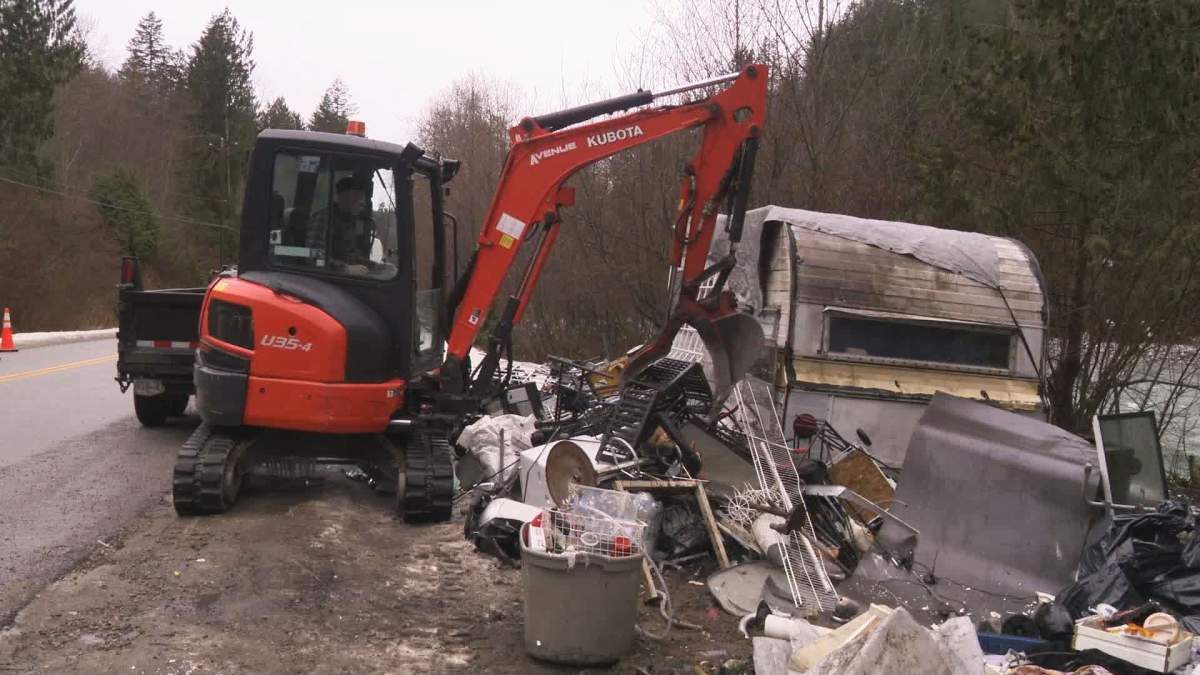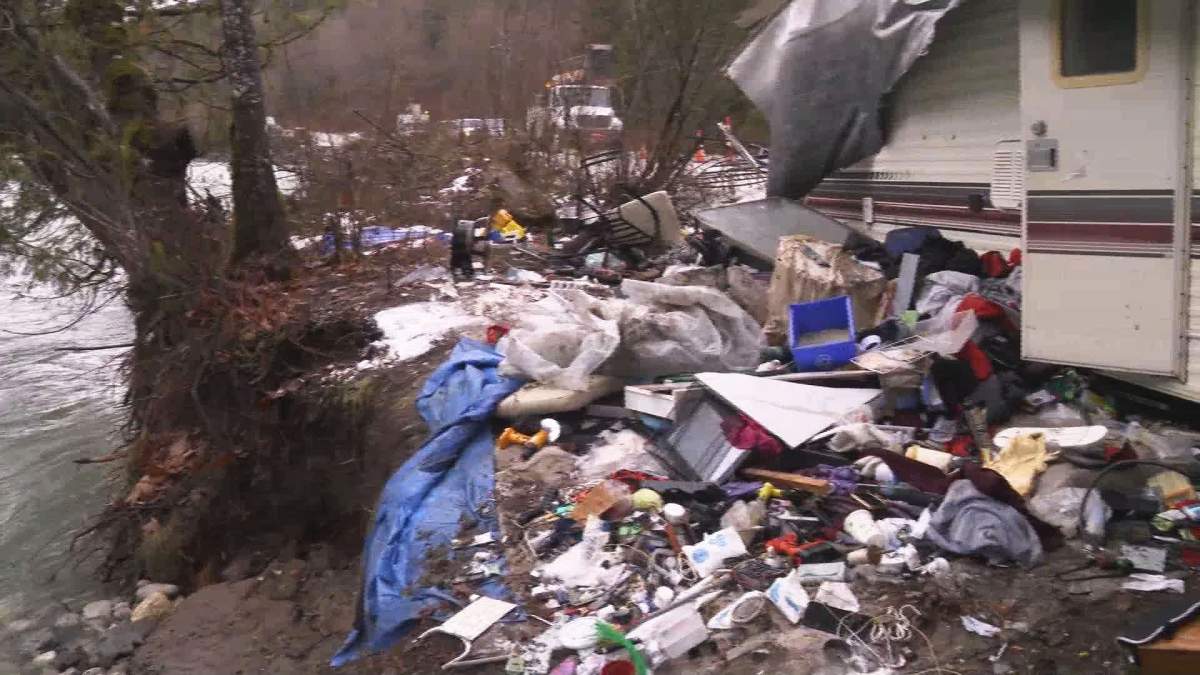A group of volunteers in British Columbia’s Fraser Valley are fed up with waiting for the provincial government to clean up an abandoned homeless camp and have taken matters into their own hands.

The group is moving heaps of garbage and makeshift homes from the camp along Chilliwack Lake Road east of the Allison Pool campsite. Some of the items include appliances and whole trailers.
Volunteer Clay Niezen says he sympathizes with those who used to live in the camp and describes himself as a bit of a hoarder.
“What I think is a person’s life is so empty and void of meaning that they just hoard all this stuff to make them feel like they’ve got something. It doesn’t matter what it is,” he said, choking back tears.
“But ultimately, people are more valuable than nature. But they’re gone. I don’t know where they went to. But they’ve left this and so we’re just going to try to make a little difference and clean it up.”
- B.C. coroner to make Tumbler Ridge announcement amid call for mass shooting inquiry
- Hundreds of sea lions have taken over a Vancouver Island beach
- AI-generated CRA tax scams increasing, cybersecurity experts warn
- Musqueam First Nation signs Aboriginal rights deal with Ottawa – read the full agreement
Organizers say the camp has been abandoned for at least two months and garbage and toxic material have been washing into the river.
“There’s the (homeless) persons affected, but then there’s also impacts to the environment and our natural resources and river,” Ann Davis Transition Society (ADTS) executive director Patti MacAhonic said.

Get daily National news
“We don’t even know what kind of kind of toxins and different things that could be put into the river and there’s (fish) spawning grounds that are below.”
The Ministry of Forests, in a statement, wrote the encampment “lies in a sensitive area of the river that has been washed out in previous flooding episodes. Some of the garbage has already been witnessed being pulled into the river.”
It said ministry staff felt it was vital to remove all garbage as quickly as possible, but also acknowledges cleaning efforts are being led by local environmental volunteer groups.

“If the group of volunteers have concerns, they should be brought up to the individual or entity responsible for the specific property, either a land owner, Indigenous community or appropriate government agency,” Agassiz RCMP Sgt. Sargent wrote to Global News.
“Often a collaborative approach in addressing these types of situations has proven to be successful in past similar instances.”
Any person may camp on Crown land for up to 14 consecutive calendar days, but MacAhonic says the law does not appear to be enforced.
“We really need boots on the ground. We need more conservation officers out here. We need natural resource officers. We need some way for people to be able to enforce this and then of course we need someplace for people to go. It needs to have different ministries, different people coming together.”
MacAhonic says there are around nine camps in the area, and while organizations such as ADTS are aware of who is living in each camp, there is no system to have information dispersed among the community and various government agencies.
But without stable, affordable housing, she says camps will likely keep appearing in the area.

“Unless we can get some enforcement out here to move people along, and unless we have somewhere to move them to and options for them, we’re going to keep running into the same thing,” she said.
She says her organization offers counselling services for women at risk, but it remains a challenge to get anyone the mental health treatment they may require.
“Our outreach workers are trying to do the best they can but it’s dangerous. It’s absolutely dangerous. There’s addictions and crime and mental health and there’s not enough resources to go around.”
— with files from Julie Nolin










Comments
Want to discuss? Please read our Commenting Policy first.